Eviction Resources and Alternatives for Landlords
Landlord Education Hub
Eviction As A Last Resort
Optimally, filing an eviction is the last resort…evictions stay on a tenant’s record forever and can potentially limit the tenant’s future ability to rent. Additionally, they are time-consuming, costly, and stressful for landlords. While evictions are sometimes necessary, there are times when a better alternative is available.
Landlord Training Opportunities
Learn how to save money, connect to resources, and provide tenants with the tools to stay housed.
View the full session featuring innovative ways to provide affordable housing.
View the materials shared during this panel discussion about eviction and eviction alternatives. (Oct. 2024)
Landlord Knowledge Base
-
Optimally, filing an eviction is the last resort…evictions stay on a tenant’s record forever and can potentially limit the tenant’s future ability to rent. Additionally, they are time-consuming, costly, and stressful for landlords and tenants alike.
Communicate with the tenant to find out what’s going on. Is it a temporary or long-term issue? Could connection to a community resource help?
Work to find a solution before rental arrears become huge.
Make sure the tenant knows to call 211 to connect to community resources. In addition to rental assistance, tenants in crisis may need help with food, childcare, transportation, etc.
-
Five Principles for Strengthening Tenant Stability and Eviction Prevention
1. Remove barriers for tenants in their housing search and use transparent processes when establishing tenancy.
Review tenant screening practices periodically using best practices to minimize harm
Provide clear and transparent leases
Educate tenants about terms of residency
Implement just-cause eviction and standard operating procedures
2. Use clear, accessible, and equitable communication through all stages of tenancy.
Employ frequent and proactive communication among owners, managers, and tenants
Use culturally appropriate and inclusive communication
Use trauma-informed methods of communication
3. Proactively connect tenants to resources and encourage communities of support to help tenants stay stable throughout their tenancy.
Proactively connect tenants to resources
Support strong tenant communities
4. Allow flexibility in terms, processes, and payments for renters to reduce the likelihood of eviction.
Provide sufficient filing notice
Allow lease modifications
Consider using payment plans, waiving late fees, and reducing arrears
5. Commit to procedures that prioritize eviction diversion in the case of nonpayment or late payment.
Engage in mediation
Offer mutual rescission
-
Recognizing the profound impact of evictions, NOAH Property Management (NOAH), a local affordable housing provider, has developed a comprehensive program designed to support those who have been displaced and help them rebuild their lives. Here are a few of the innovative programs offered by NOAH that landlords can implement in their properties:
Conditional Approval - This process allows us to offer housing to individuals with a history of eviction, giving them the opportunity to prove their reliability as tenants. By moving beyond a tenant’s past difficulties, we provide a fresh start and a chance to rebuild. We have partnered with Southeast Affordable Housing Administration (SAHA) to provide economically mobilizing case management for such tenants. Through our conditional approval process, we ensure that these individuals can receive all the same benefits as any of our tenants. This includes access to affordable rents, Flex Pay, deposit alternatives, and credit-building opportunities. By doing so, we help them rebuild their lives and work towards a more secure and prosperous future.
Flex Pay - Their Flex Pay program allows residents to align their rent payments with their pay schedule, which helps avoid late fees and better manage finances. This approach not only reduces financial pressure but also supports better budgeting practices.
No Deposit Required policy - Eligible residents are not required to pay a deposit, easing the financial burden often associated with moving into a new home. This initiative removes a significant financial obstacle, making it easier for tenants to secure stable housing.
Credit Building - NOAH's credit building program reports positive rent payments to credit bureaus. This helps tenants improve their credit scores, making it easier for them to secure housing and financial products in the future. Building a positive credit history is essential for achieving financial independence and security.
-
South Carolina law says a landlord has to make all repairs to the property that are necessary to keep it in a safe and livable condition. This includes:
Keep the property in a “fit and habitable” condition
Keep common areas of the property safe (like hallways, shared yards, etc.)
Make running hot and cold water and heat available
Keep all electrical, gas, plumbing, sanitary, heating, ventilating, air conditioning, and other appliances in good and safe working order
Comply with the requirements of applicable building and housing codes materially affecting health and safety, according to SC Code 27-40-440.
(Source: SC Legal)
What Are My Tenant’s Rights?
Visit https://www.scjustice.org/brochure/the-eviction-process/ to read about tenant rights.
Contact Greenville County Human Relations Commission:
Phone - 864.467.7095 Office, 866.495.3918 Toll Free Phone
Email - (who should this be?)
Website - https://www.greenvillecounty.org/HumanRelations/FairHousing.aspx
What are some of my tenant’s responsibilities?
Pay rent on the date it is due.
Do not harm the landlord’s property or disturb the other tenants.
Do your part to keep the unit safe and clean.
Dispose of garbage, rubbish, and other waste in a clean and safe manner.
Keep all plumbing fixtures in the dwelling unit or used by the tenant reasonably clean.
Use in a reasonable manner all electrical, plumbing, sanitary, heating, ventilating, air-conditioning, and other facilities and appliances including elevators in the premises.
Be responsible for your guests’ actions.
(Source: SC Appleseed & SC Code § 27-40-510)
Learn more about Landlord-Tenant Law in SC HERE.




